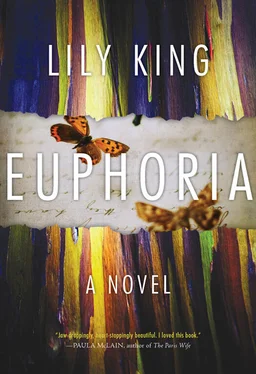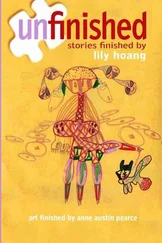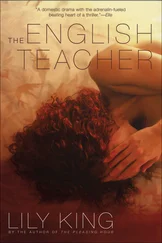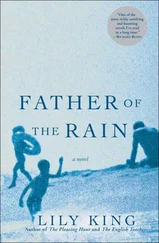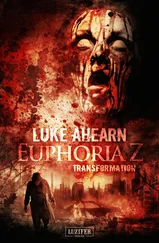2/10 Thick dreams about Helen in Marseille. Over three years ago now but am still stuck there, going back & forth between the two hotels, trying to split myself in half. H in her blue hat on the quai, her lips quivering: I’ve left Stanley, her first words to me, and then Fen not giving us the time he’d promised me, coming right up behind me, leaving no doubt, no room for an explanation. Oh rotten days. Rotten. And yet I return to them like an opium addict.
I want too much. I always have.
And all the while I am aware of a larger despair, as if Helen & I are vessels for the despair of all women and many men too. Who are we and where are we going? Why are we, with all our “progress,” so limited in understanding & sympathy & the ability to give each other real freedom? Why with our emphasis on the individual are we still so blinded by the urge to conform? Charlotte wrote that rumors are flying about Howard and Paul, and Howard might lose his job at Yale. And her nephew, getting his PhD at Wisconsin, was declared insane and committed to a state asylum when they discovered he was a leader in the Communist Party there. I think above all else it is freedom I search for in my work, in these far-flung places, to find a group of people who give each other the room to be in whatever way they need to be. And maybe I will never find it all in one culture but maybe I can find parts of it in several cultures, maybe I can piece it together like a mosaic and unveil it to the world. But the world is deaf. The world — and really I mean the West — has no interest in change or self-improvement and my role it seems to me on a dark day like today is merely to document these oddball cultures in the nick of time, just before Western mining and agriculture annihilates them. And then I fear that this awareness of their impending doom alters my observations, laces all of it with a morose nostalgia.
This mood is glacial, gathers up all the debris as it rolls through: my marriage, my work, the fate of the world, Helen, the ache for a child, even Bankson, a man I knew for 4 days and may easily never see again. All these pulls on me that cancel one another out like an algebraic equation I can’t solve.
2/12 Great commotion on the water this morning. The women’s boats which had gone out peacefully earlier came rushing back in shouting & splashing and when I got to the beach I saw that all the screaming had been coming from one woman, Sali, her moans deep and her yelps shrill and then a harsh cry like a mountain lion with an arrow through its flank. She staggered from the canoe to land and crouched in the sand to have her baby. A few of the older women spread bark cloth beneath her. They all began singing songs to lure the baby out. I waited for the taboos to set in and people to be sent away, but no one chased me or anyone else away, not even the few men who had gathered beneath trees behind us. I spotted Wanji among them and sent him up to the house for boiling water & towels. I squeezed in beside Malun.
I assisted in this birth. I saw the baby’s head show and retreat, show and retreat like a moon phasing quickly and then suddenly it pushed through the bright red labia all at once while Sali hollered then was so quiet I thought she was dead but then she was screaming again and a shoulder came through, a tiny knob compared to the huge head and at the next ripple of pain I tugged on that little shoulder and the other shoulder came, followed by the belly and the little fat legs and there he was, a baby boy, as if brought in on a tide. Malun & her sister laughed at my tears but I was overwhelmed by life arriving and remembering my sister Katie’s fat legs and full of a wild selfish hope that my body having now seen the simplicity of it could manage that someday. Malun bit off the cord and cinched the stump with a reed. Many hands reached out to wipe the white coating off the baby and I wondered if this is where the Mumbanyo’s King of Australia myth comes from, the one in which the first man steps out of his white skin. Wanji finally came with the boiled water and towels but we didn’t need them. As we walked up the beach Kolun, Sali’s husband, came forward and took his child without hesitation and the baby curled up like a kitten in the crook of his collarbone. A few men had flutes and played a formless tune. Sali walked without help and chatted with her two sisters and cousin. I wished I could understand all that she was saying but it was too fast, too intimate.
2/16 Sali’s baby died. He wouldn’t suck.
2/17 Fen is being insufferable. He cuffed Wanji for taking a few elastic bands without asking and now Wanji is wailing and Fen is shouting and Sali’s boy is still dead.
She dreamed of dead babies, she wrote in her bark cloth book. Babies on fire. Babies caught in webs of trees. Babies covered in ants. She lay in her bed and counted the number of dead babies she had seen in the past two years. The Anapa boy was the first, cut out of his dead mother’s womb so that he would not haunt them. The girl Minalana, nearly a year old, bitten by a redback spider. With the Mumbanyo there was often no death ceremony for infants. You stumbled on them half buried or caught among reeds in the river. Any baby that was an inconvenience or thought to be another man’s. And a man could avoid the six-month postpartum taboo against intercourse by disposing of the child. There had been five with the Anapa, seventeen with the Mumbanyo, and now Sali’s. Twenty-three dead babies. Twenty-four if she counted her own, a dark clump wrapped in a banana leaf and buried under a tree she’d never see again.
She heard them below the house, waiting for her. Sema’s hiccoughy nine-year-old giggle and her little brother’s whine, probably for more of the sugarcane that his mother was dangling over his head. She heard the words for eat and sweet and their name for her, Nell-Nell.
She was surprised they still came. They had not attributed the death of Sali’s baby to her presence at the birth. Not yet, anyway. When she had visited Sali the night before, she had rested her head on Nell’s shoulder for a long time. Her child had been buried two days earlier in a clearing a half hour’s walk away. Sali carried him, his tiny body painted with red clay, his face with white, his little chest decorated with shells. In one hand they’d put a piece of sago cake, in the other a child’s miniature flute. His father dug a shallow grave. Just before Sali lowered him in, she squeezed a few drops of milk from her full hard breast onto the painted lips and Nell ached for those lips to move but they did not and then they covered him with brown sandy soil.
Fen came in through the mosquito net with a cup of coffee for her. He sat on the bed and she raised herself to take the cup from him.
‘Thank you.’
He sat sideways to her, crushed a pale blue weevil with his shoe, stared at the cloth that covered the window. He had a small head, considering his length and girth. It made his eyes and shoulders look bigger than they actually were. His beard grew fast and dark. He had shaved the night before but already it had sprouted back up, not the midnight blue that appeared after a few hours like a storm cloud but real hairs that grew two or three to a pore. Women everywhere thought him good-looking. She had thought him beautiful at first, on that boat on the Indian Ocean.
He knew she’d been crying and wouldn’t look at her.
‘I just want to keep one child alive.’
‘I know,’ he said, but did not touch her.
Below they had begun to whap sticks at the supports.
‘Where are you off to today?’ she said.
‘I’m going to help with the canoe.’
Working on the canoe, which he had been doing for the past five days, meant digging out the insides of an enormous breadfruit tree so that eight men could travel inside it. It meant another day without note taking, another day of failing to gather hard information.
Читать дальше
